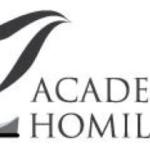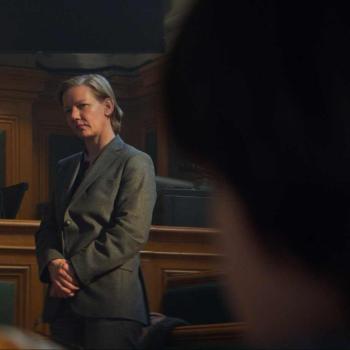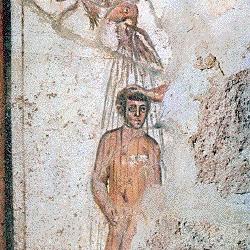"Let the rivers clap their hands; let the hills sing together!"
As in Psalm 148, all things — human, animal, and object — are bid to the praise of YHWH. And the summation of the reasons for that unbounded praise may be found at the poem's conclusion.
"(All stand) before YHWH who comes to judge the earth.
YHWH judges the tevel with righteousness,
especially the peoples with uprightness."
It is crucial to paint the portrait of YHWH's coming in judgment clearly at the end of the poem. The picture of YHWH's coming judgment is too often seen as harsh and demanding, a final assize where separations between good and evil are made and eternal punishments are meted out to the evil while the good are wafted to the heavenly mansions prepared for them. Heironymus Bosch's cartoonish drawings were enough to send shivers up the backs of many a believer over the centuries, but his picture of the judgment of God is only one of many that the western world has provided, cementing these terrible ideas in the hearts of fearful folk for more than 2000 years.
There is none of that here; YHWH comes in chesed and judges with righteousness and uprightness, not vengeance and retribution. It is fully reminiscent of the Matthean Jesus' unforgettable portrait of God's coming at the end of the age in Matthew 25.
Thus, our roles as God's Easter people remain the same: unchanging and unbreakable love for all of God's world, mirroring God's love for that world. Our praise is at the end our love, because that is the very essence of God.





